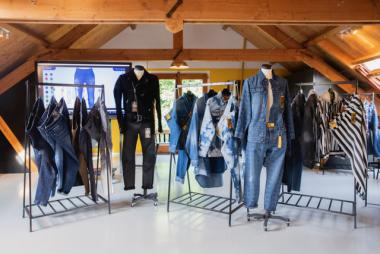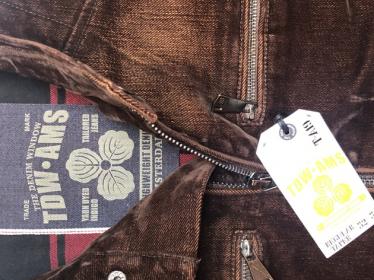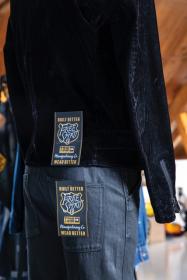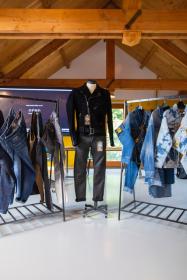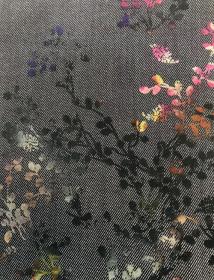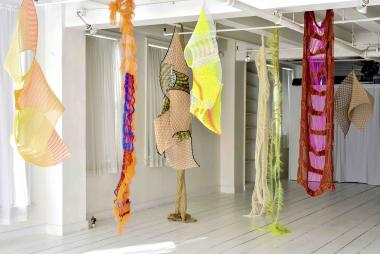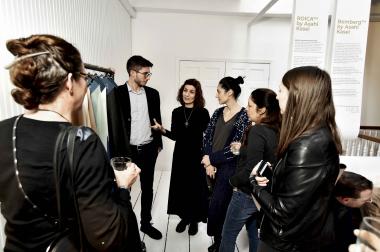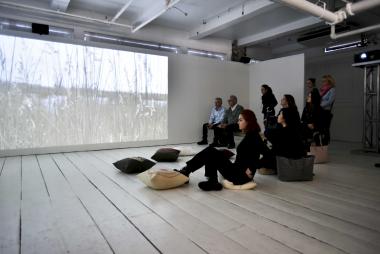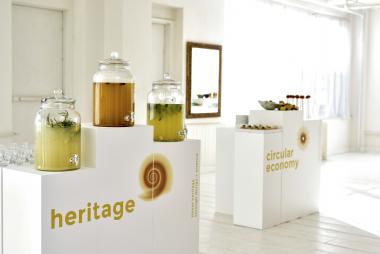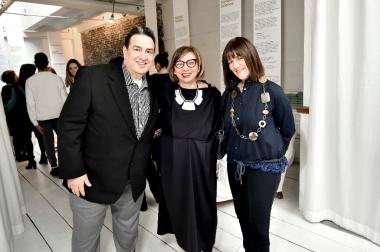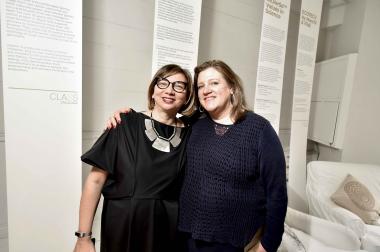The new PG DENIM developments: overlapping seasonality and the five “Rs” of sustainability.
- Circularity at the centre
PG DENIM, the designer project by Paolo Gnutti, is ready for several important events scheduled for the autumn with ground-breaking interpretations and a new – increasingly green – business model. The occasion is its participation in the Blue Zone at Munich Fabric Start (Munich, 3-5 September 2019), a space which is increasingly often reserved for companies and projects with a high innovation rate in the world of denim.
PG DENIM at the German exhibition will be presenting important product innovations, but most notably new concepts developed for the S/S 2021 season. The focus here is on circularity, seen from a dual perspective: the product with the no longer traditional alternation of seasons, and a sustainabilityoriented approach.
Seasons meet
The new PG DENIM approach is geared towards overlapping seasonality, with less and less marked separations between projects dedicated to the spring-summer and fall-winter lines. The collections by PG DENIM can thus be increasingly defined as a “mix of products without seasonality”. Its focal points are innovation alongside the concept behind the initial idea, as opposed to just the season. This trend, explains Paolo Gnutti, CEO and R&D Head at PG DENIM, is also due to registering the fact that seasonality – in terms of environment and trends – is changing at an increasingly rapid pace. As a response to this situation, the choice has been made to design new collections starting from macro-trends and presenting fabrics for garments which are “easy to wear”, suitable for both warm and cold temperatures, in a true melting pot of weights and sizes.
The lines for the previous season are thus reintroduced and restyled playing with weights and sizes, within a range where flock meets ultra-light fabric bases, or where vinyl is combined with typically summer weights which shift the fabric towards the world of “paper” with crispy touches, resulting in extraordinarily lightweight and strong items at the same time. Also the GARAGE DENIM has been upgraded with fluid and smoothed touched for garments which are easy to wear and have a strong personality.
Partnership with The Denim Window
The PG DENIM season is also enhanced by its partnership in The Denim Window project, which has resulted in a limited series of Creative Capsule Collections, derived from the idea of bringing together companies which had already worked or were working together, trying to highlight – through small capsule collections – the best of what had already been produced by traditional businesses. This has resulted in three trailblazing capsules, two of which designed in partnership by PG DENIM and companies the likes of M&J Group, Cadica and Greenwear. Several copies of these collections have been made to travel the world, and – after the official presentation in July – they will have a special corner, The Denim Window, in the Bluezone at Munich Fabric Start.
The “Circular Programme” and the five “Rs” of sustainability
Also the PG DENIM approach to accountability in production processes has been enhanced by implementing the “Circular Programme”. As part of our corporate vision, Italian-style production is combined with compliance with what have become known as “the five Rs”, that is to say key concepts underlying the design and manufacturing model: Reduce (everything you are not using), Repair (everything you can), Reuse (anything available to you), Recycle (all that is left), Respect (everything around you).
This is the philosophy underlying each individual process at PG DENIM, and leading to new specific programmes which have been its business focus over the past few months:
1) Reducing the environmental impact during the fabric dyeing phase in reaction and sulphurbased processes, where the use of chemicals has been reduced by 40%, water consumption by 50% and CO2 emissions by 60%, which has also resulted in better penetration and a better result in the crocking process. This has led to producing 10 new articles which will be launched on the market.
2) Recycling all waste from processing and after use, creating a range of garments where cotton is actually obtained from regenerating these two kinds of waste. In this regard, PG DENIM for now is the only company on the market able to process with a percentage of recycled product exceeding 60% of the total, whereas the average for this kind of manufacturing is generally about 35%.
As regards regular production, on the other hand, PG DENIM follows stringent international standards, including Dtox, Reach and Gots in all its processing phases, also using BCI cottons and the Organic Cotton Standard for raw materials. Last but not least, it was recently awarded the GRS (Global Recycled Standard) certification.
Menabò Group s.r.l.


